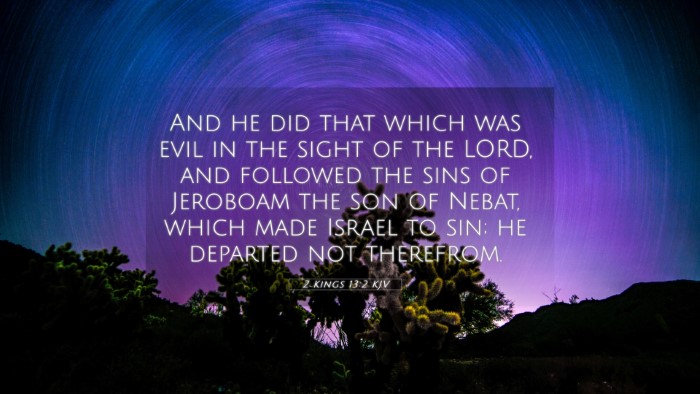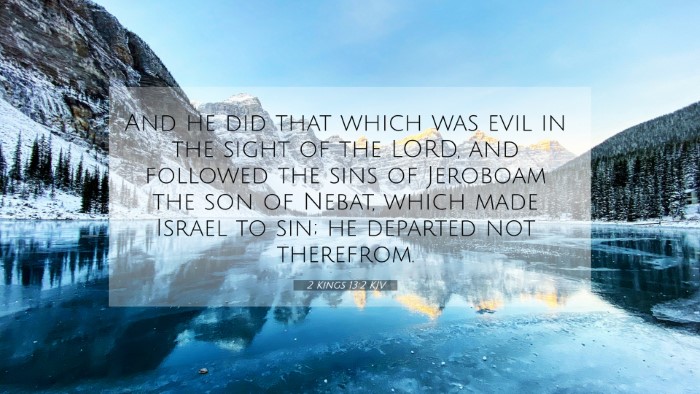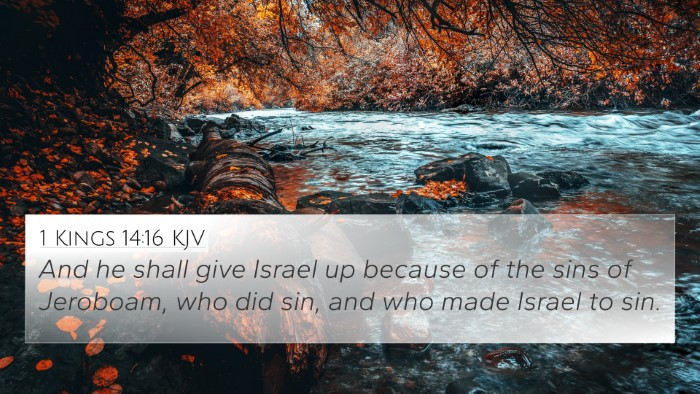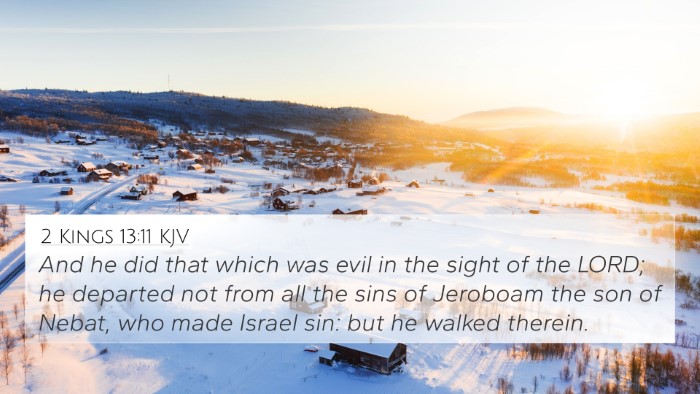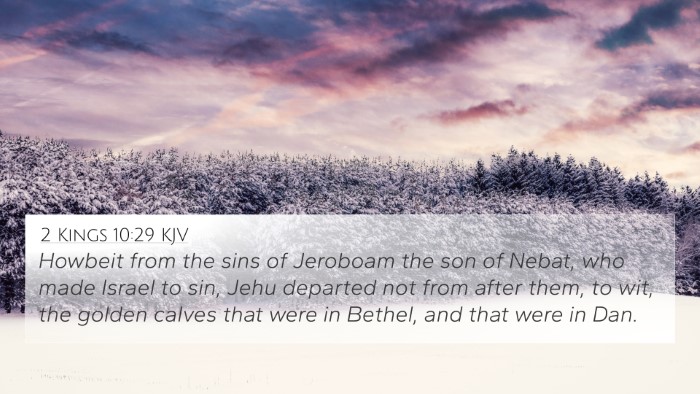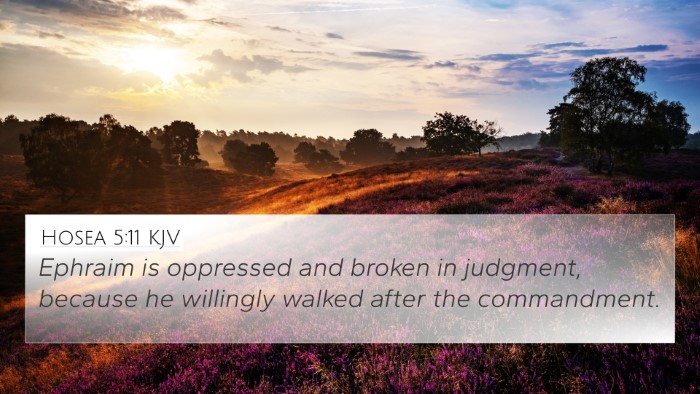Understanding 2 Kings 13:2
2 Kings 13:2 states: "And he did that which was evil in the sight of the Lord, and followed the sins of Jeroboam the son of Nebat, which made Israel to sin; he departed not therefrom." This passage presents a crucial evaluation of King Jehoahaz's reign over Israel.
Contextual Background
The period of 2 Kings illustrates a time of division and moral degradation within the kingdom of Israel following its split from Judah. Kings were often measured against the standard set by previous monarchs, particularly regarding their fidelity to God's commandments.
Commentary Insights
-
Matthew Henry:
Henry emphasizes that Jehoahaz’s leadership mirrored the sinful patterns established by Jeroboam. His actions drew the nation further away from the covenant relationship with God, showcasing a repetitive cycle of disobedience that plagued Israel's kings.
-
Albert Barnes:
Barnes identifies Jehoahaz's evil actions as a direct continuation of idolatry influenced by Jeroboam's legacy. This cyclical sinfulness demonstrates how leadership can impact national spirituality and moral standing before God.
-
Adam Clarke:
Clarke interprets the verse as a stark warning against the consequences of leadership failure. He notes that Jehoahaz's reluctance to break away from Jeroboam’s sinful practices prevented Israel from returning to favor with God.
Thematic Connections
This verse encapsulates several themes relevant to the overall biblical narrative. It invites comparison between the effects of leadership on spiritual direction and the consequences of idolatry. Understanding these themes is essential when exploring connections with other Bible verses.
Cross-References and Related Scriptures
- 1 Kings 12:28-30: Highlights Jeroboam's establishment of idolatry that sets a precedent for others.
- 2 Kings 10:29: Illustrates how idolatrous practices continued under subsequent rulers.
- Micah 6:16: Emphasizes the folly in following the traditions of wicked leaders.
- Psalm 106:36-39: Describes the consequences of engaging in idol worship.
- 2 Kings 17:21-23: Reflects on the importance of turning back to God's covenant.
- Hosea 4:17: Addresses Israel's reliance on idols and the ensuing judgment.
- Jeremiah 3:6-10: Portrays the spiritual adultery of Israel and its leaders.
- Acts 7:42-43: Points out the continuous cycle of rebellion against God.
- Isaiah 65:2: God’s continual outreach to a rebellious people.
- Ezekiel 18:30: Calls for repentance and turning away from sin.
Inter-Biblical Connections
Jehoahaz's actions invoke an inter-Biblical dialogue that reflects on the nature of sin, repentance, and divine justice. By exploring how various biblical texts interact, one can glean deeper insights into God’s expectations and human shortcomings.
Key Takeaways
When studying 2 Kings 13:2, consider how kingly behavior influences national conduct and the imperative of maintaining fidelity to God’s commands. The cross-referenced verses further articulate the themes of idolatry, leadership, and the critical need for genuine repentance.
Conclusion
2 Kings 13:2 serves not just as a historical account but as a poignant reminder of the dangers of spiritual complacency and the precipitating effects of ignoring God's directives. For those seeking deeper understanding or conducting comparative Bible verse analysis, this verse is pivotal for exploring the connections and consequences of disobedience throughout scripture.

